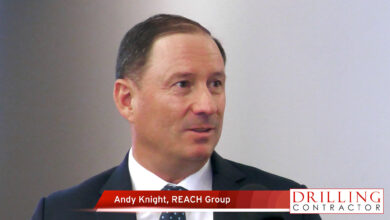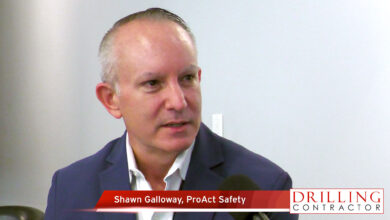On environmental stewardship, industry may need realignment
By Linda Hsieh, Editor & Publisher
The world’s energy system is heading for big changes, and the drilling industry must have a stronger voice in the public discourse around climate change and better position itself as part of the solution. This was the main takeaway from Shell’s keynote address at the IADC Drilling HSE&T Europe Conference in September. And it’s a message that echoes other speeches and discussions that I’ve heard throughout this year.
Drilling contractors and other oilfield service companies are increasingly being measured – by both their customers and the investor community – not just on financial and operational performance but also on environmental, social and corporate governance (ESG) criteria. The European Investment Bank, for example, is apparently considering a new energy lending policy that will phase out funding to energy projects relying on unabated fossil fuels.
Within this context, the need for both E&P and drilling companies to realign themselves has never been more evident.
Less carbon but more energy
But first, let’s be clear about the value of oil and gas, and the critical role that fossil fuels have played over the past 100-plus years to boost economies and lift humans out of poverty. Clean water, sanitation, healthcare, nutrition and education – the quality of life for billions of people on Earth has been inordinately enhanced by affordable and reliable access to energy.
“By any metric, the world is a better place now than it was 100 years ago, and it would not be possible without energy,” Martijn Dekker, VP of Strategy and Portfolio for Shell, said at the September conference. “We should be extremely proud of the work we’ve done in this industry.”
With that said, the energy transition is pushing ahead, with renewables becoming more cost-competitive and set to take bigger shares in the energy mix. Changes in government policies will further facilitate their growth as countries align toward the goals of the Paris Agreement to limit global warming to well below 2°C and pursue efforts to limit it to 1.5°C.
As of 2019, more than 190 countries have already signed the agreement. Within this industry, the agreement was also endorsed by the Oil and Gas Climate Initiative – formed by CEOs of 10 of the world’s largest oil and gas companies.
“With the Paris Agreement, the world sent a very clear signal that it wants climate change to be addressed, and something was going to change,” Mr Dekker said.
Reducing the use of fossil fuels won’t be easy, especially considering that there are still more than 1 billion people on Earth who don’t even have access to electricity. As developing nations seek to improve their quality of life in the coming decades, the demand for affordable, reliable energy will only increase.
Environmental Stewardship
The current energy system and infrastructure will not change overnight, and there is clearly a significant role for oil and natural gas to play for decades. Even under Shell’s Sky scenario – a vision for how the world can achieve net-zero carbon emissions – oil and gas will remain “a huge, global industry in 2070,” Mr Dekker said. And if companies can show there’s a role they can play on the journey to net-zero, they stand to reap significant rewards, he added.
In May this year, Maersk Drilling announced it was converting the Maersk Intrepid into a hybrid, low-emissions rig. More recently, Transocean also announced that it had deployed a world-first hybrid energy storage system onboard the Transocean Spitsbergen. Both are examples of how drilling contractors, supported by their customers and government policy, are investing in emissions-lowering innovations.
There are also examples of how the environment is benefitting simply from the industry’s relentless drive for efficiency, like using pad drilling. Or horizontal drilling, which enables operators to deliver the same production while drilling fewer wells. The reduction in drilling days per well also translates into less fuel used and less emissions.
Communicating stories like these to the public and helping them to understand the value of what this industry does – that will likely be an uphill battle. But a lot is at stake, and this is a battle worth winning. DC




